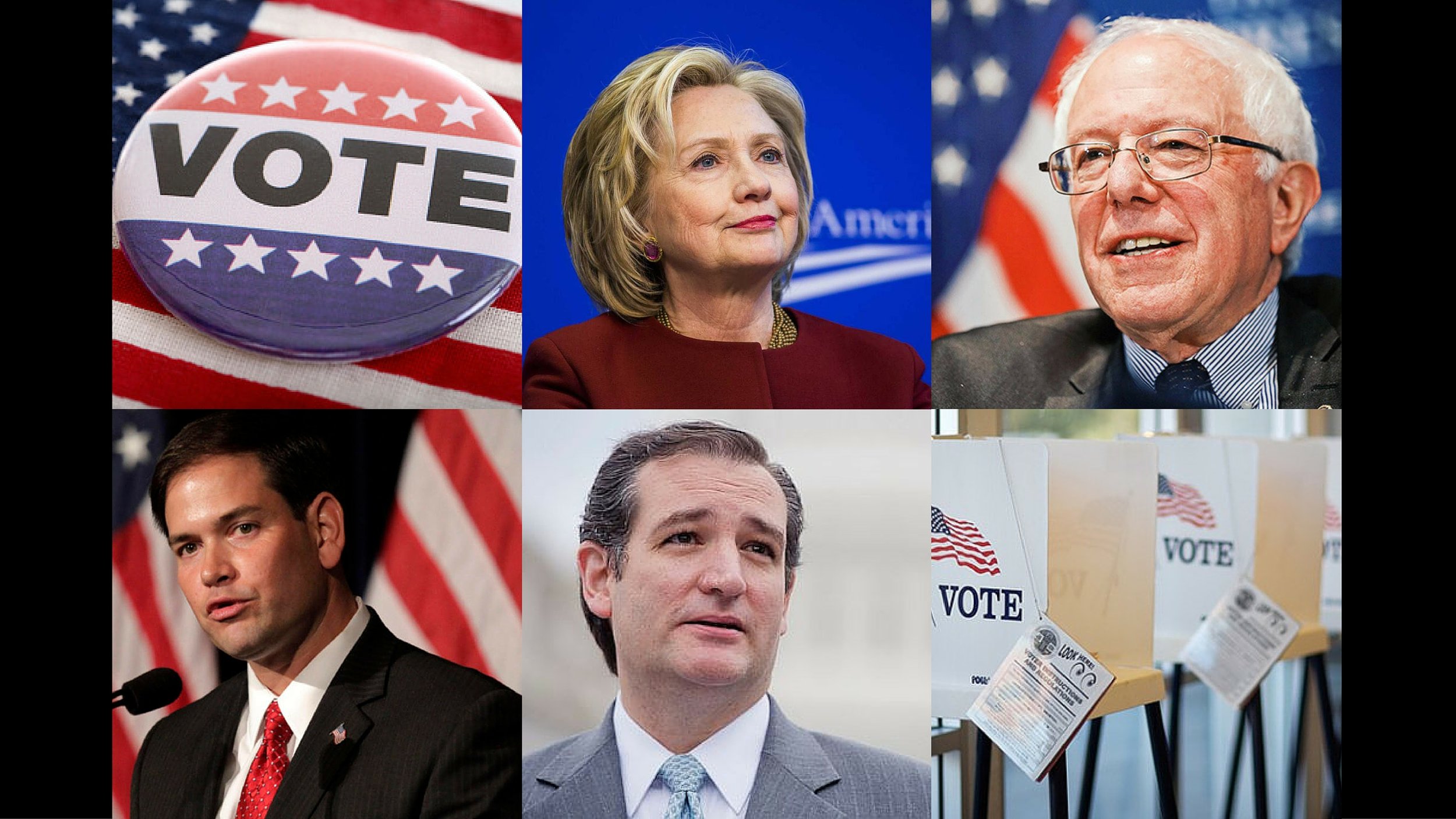Faithful Voting
02-24-2016
By Student Gregg Hunter
With election season getting into full swing with the beginning of the primaries, people around the country will start trying to figure out in earnest who they should cast their votes for to succeed President Obama. Should they vote for someone like Donald Trump or Ted Cruz, who have tapped into the frustration and anger of a government which they see as failing them? Should they go opt for a more pragmatic tone in the shape of Marco Rubio or John Kasich? Can Hillary Clinton keep us on the path that President Obama continues to forge? Or should we blow the whole thing up and start anew with Bernie Sanders?
In all the din of this election cycle, every citizen has tried to mine the diamonds out of this rough that we call politics in the U.S. That task proves even more difficult as a faithful Christian. While Church and State (in theory) remain separate, Church and State constantly interact in the form of the citizenry. Politicians, especially those of the more conservative persuasion, constantly evoke God (the Judeo-Christian one anyway) in order to prove their Christian credentials to an electorate which still remains curious about where their elected officials stand in relation to God. Clearly, people take their faith with them when they enter the ballott box and choose whom will represent them as the face of the nation. So that begs the question: how should a Christian faithfully vote?
The state acts based on this principle: that it should ensure the safety of its citizens. The state does not act like this out of a kind-hearted benevelonce in all instances. In fact, the state acts to ensure safety so that it can stay in power. In the U.S., we elect our officials on the premise that they will keep us safe and ensure for us the best quality of life. In other words, we depend on the state to give us life so that we might live. The state issues laws and provides services so that we the people might have life and life more abundant.
God also issued laws and provided services so that God’s people might have life and life more abundant. All throughout the Levitical laws, God works in laws that build upon the Israelite experience of oppression. God decrees that the Israelites should look after the stranger because they were strangers in Egypt; God exhorts the Israelites to look after the poor, for they did not have two (Egyptian equivalent of) nickels to rub together; and God commands the Israelites to take care off the widow and orphan, the most vulnerable class of people in society for they had no one to take care of them. God also provided services for the people in time of need, like manna from heaven or water from a rock. God set up a state that would ensure that God’s people would have security and their needs provided for.
Exodus, Leviticus and Deuteronomy detail the entirety of the laws the Israelites should follow to maintain their end of God’s covenant. This code the Israelites followed for centuries, a code which taught the Israelites how to relate to God and neighbor. In Matthew 22:37-40, Jesus sums up the whole of the Law in two commandments: love God, love neighbor; these two laws form the foundation of all the Law. The law of the land, God’s land, is and always has been love.
The last time I checked, the Earth was still the Lord’s and all that was within it. And the U.S. is most certainly on the Earth, so the U.S. belongs to God (Ps 24:1). If the U.S. is God’s, then the U.S. government should follow the law of God’s land, which is to love God and love neighbor. A government whose laws do not rest on those commandments falls short of the mark. I do not mean that the U.S. should love the Christian understanding of God and base its laws on that interpretation, but that the laws should reflect the fact that we should serve an entity other than ourselves.
Not only should our laws reflect this understanding, but our politicians should as well. When we decide who to vote for, we as Christians should consider which politicians show the love of God and neighbor in their positions and policies. The law of God is the law of life and love. Not every politician can meet this lofty standard on everything, for they are human just as we are. I will not get into the many different conflicts between Christian voters (such as abortion, prayer in schools, and gun regulation), but Christians all across the political and religious spectrum believe that they defend and proclaim a standard for life and love.
Now, some politicians make it very easy to remove themselves from consideration. Their rhetoric harms and spews venom as opposed to love, which is rather confusing since they bear the name of Jesus Christ but don’t speak as he spoke. For the other politicians, trying to piece together a cohesive, love-centered worldview which ensures the needs of the entire body politic, not just a few. In our voting, we should aim to vote for the person who lives into an ethic of love for all as authentically as possible. That does not always mean a Democrat or a Republican, a progressive or conservative. That person could be a socialist or a capitalist (I know, how right?), but whoever that person may be, gay or straight, man or woman, Hindu or atheist, whoever guides their principles in love. If vote in this manner, we will live (Luke 10:27).
Gregg Hunter is an MDiv student at McCormick Theological Seminary, and deputy editor of the McCormick Herald newsletter.




